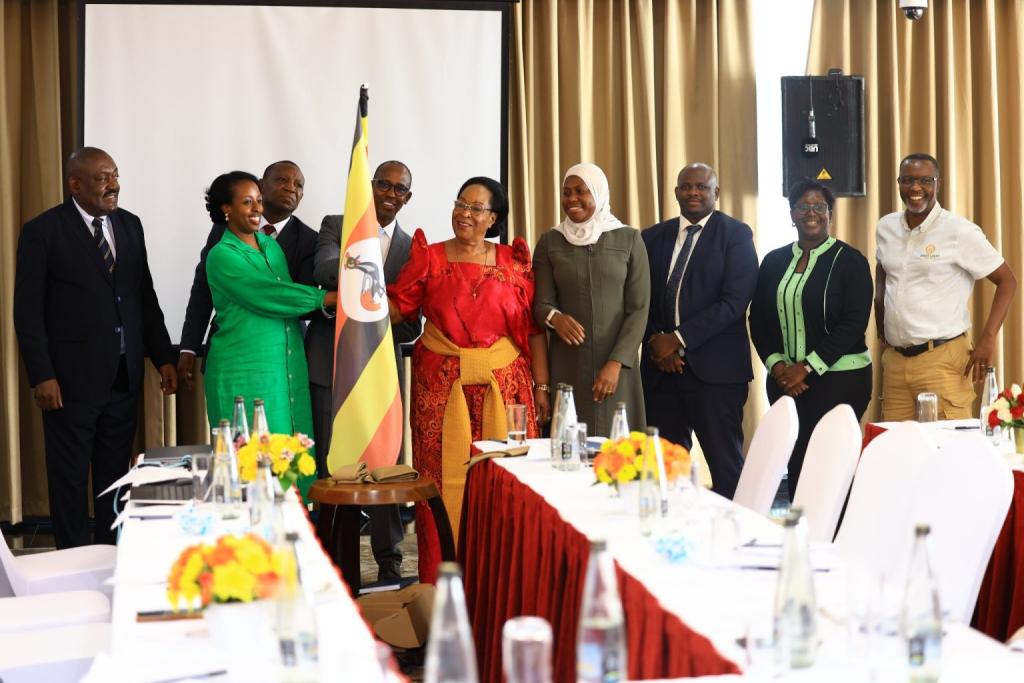Uganda has officially launched the National Strategic Communications Committee (NSCC), a cross-sectoral platform designed to harmonize government messaging, rebuild public trust, and protect the country from the reputational costs of communication breakdowns.
Positioned under the Ministry of ICT and National Guidance, the NSCC brings together public and private sector players to streamline communication, craft unified national narratives, and ensure consistency across ministries and agencies.
“A lack of a unified national vision results in scattered and ineffective messaging,” said Odrek Rwabwogo, Chairperson of the NSCC. “Such fragmentation undermines the country’s strategic interests.”
Uganda’s communication challenges are well documented. From contradictory COVID-19 guidelines to delayed responses to economic rumors, inconsistencies in government messaging have sown public confusion, fueled misinformation, and undermined confidence in public institutions.
In 2020, varying interpretations of lockdown rules will see businesses open in some districts while remaining shut in others. In 2021, delayed government clarification amplified public backlash over a coffee export agreement, leaving space for speculation to flourish.
Even rumors about fuel shortages in 2022 went unchecked for hours, sparking unnecessary panic.
These and other examples have exposed a core weakness: Uganda lacked a central mechanism to ensure that government communication was timely, accurate, and aligned. The NSCC seeks to close this gap.

“The media wields a powerful influence in determining how Uganda is perceived, both locally and globally,” said State Minister Hon. Joyce Nabbosa Ssebugwawo, who presided over the launch on behalf of Hon. Chris Baryomunsi. “We must tell our story with unity, accuracy, and pride.”
The NSCC’s core mandate includes promoting cohesive and consistent narratives across government agencies, addressing reputational harm caused by misinformation, and ensuring Uganda’s achievements and strategic priorities are effectively communicated. The NSCC also aims to counter inaccurate reporting by providing credible, data-driven responses, reinforcing public trust and national credibility.
“Every nation has challenges, but they don’t headline their media every day,” said Marcella Karekye, Head of the Government Citizen Interaction Center (GCIC). “We must highlight positive stories and promote Uganda’s strengths.”
The committee will also serve as a rapid-response unit to counter technically inaccurate or sensational reporting, especially in sectors like agriculture, which face high reputational risks in global markets.
“Sensational reporting—often lacking technical understanding—can harm the credibility of our exports in foreign markets,” warned Dr Paul Mwambu, speaking on behalf of the Ministry of Agriculture, Animal Industry and Fisheries (MAAIF).
Uganda is not alone in recognizing communication as a pillar of modern governance.
In Rwanda, the Office of the Government Spokesperson works closely with ministries to maintain message alignment and combat disinformation, contributing to the country’s reputation for coherence and unity.
In Ghana, monthly press briefings led by the Ministry of Information ensure the public is regularly updated on policy developments, fostering transparency and discouraging rumour-mongering.
These models have proven that effective strategic communication can shape national perception, build investor confidence, and promote civic trust—all vital to long-term development.
The launch of the NSCC marks a decisive move away from reactive crisis communication toward a proactive, strategic approach that recognizes messaging as central to diplomacy, trade, and national unity.
Its objectives, once operations begin, will include: delivering training and capacity-building for government communicators, aligning public messaging with Vision 2040 and development blueprints, establishing a rapid response unit for misinformation, and building a positive, coherent brand for Uganda, both at home and abroad.
In a media environment where misinformation spreads rapidly and public perception shapes investment, diplomacy, and citizen trust, the establishment of the NSCC is both timely and strategic.
By harmonizing communication across government and creating systems for real-time response, Uganda stands to gain not only clarity in governance but also strength in unity.
As the committee begins its work, its success will be measured not just by how it manages crises, but by how effectively it tells Uganda’s story.


